Veer Savarkar (Vinayak Damodar Savarkar) was a great orator, prolific writer, historian, poet, philosopher and social worker.
He was a born rebel. He organized a gang of kids – 'Vanarsena' when he was just eleven. During his high school days, Veer Savarkar used to organize Shivaji Utsav and Ganesh Utsav, started by Bal Gangadhar Tilak (whom Savarkar considered as his Guru) and used these occasions to put up plays on nationalistic themes.
Savarkar was an extraordinary Hindu scholar. He coined Marathi words for telephone, photography, the parliament, among others.
In Pune, Savarkar founded the 'Abhinav Bharat Society'. He was also involved in the Swadeshi movement and later joined Tilak’s Swaraj Party. His instigating patriotic speeches and activities incensed the British Government. As a result, the British Government withdrew his B.A. degree.
In June 1906, Veer Savarkar left for London to become a Barrister. However, once in London, he united and inflamed the Indian students in England against British rule in Bharat. He founded the 'Free India Society'. The Society celebrated important dates on the Bharatiya (Indian) calendar including festivals, freedom movement landmarks, and was dedicated to furthering discussion about Indian freedom. He believed and advocated the use of arms to free Bharat from the British and created a network of Bharatiyas in England, equipped with weapons.
In 1908, brought out an authentic informative researched work on The Great Indian Revolt of 1857, which the British termed as, 'Sepoy Mutiny of 1857'. The book was named, "The Indian War of Independence, 1857". The British government immediately enforced a ban on the publication in both Britain and India.
As he was the prime inspiration for the Bharatiya students to rise against British rule, the British Government was waiting for some opportunity to arrest him. He was finally arrested in London, on 13 March 1910, on some fabricated offenses. The case against him was to be heard by a court in Bharat. Therefore, he was sent on the board of a steamer named 'Moriya' under police vigilance for hearing of the case against him in the Court in Bharat.
During the journey, the steamer was anchored at Marseilles Port in France. It was the morning of 8th July 1910. Savarkar told the security guards that he wanted to go for morning rites and went to the toilet. He removed his nightgown and hung the same on the glass door to cover himself from the guard of his security men. He jumped up to the porthole. He contracted his body, somehow managed to scramble through the hole and leaped into the unknown sea. The skin of his chest and stomach was peeled off. On realising that Savarkar had escaped, the security men started chasing him. By that time, Savarkar climbed the 9 feet quay and set his foot on the French land thus setting himself free. He ran some distance and handed himself over to the French police; but the British guards who were following him, bribed their French counterparts and brought him back to the steamer.
Savarkar was only 27 years old when this incidence took place.
Although he was arrested again by the British, his spirited and fearless leap into the unknown sea is worthy of praise. This fearless leap into the sea by Veer Savarkar at such a young age inspires patriots even today.

 Zorawar Singh and Fateh Singh who sacrificed their lives for Dharma
Zorawar Singh and Fateh Singh who sacrificed their lives for Dharma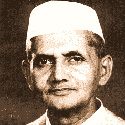 Lal Bahadur Shastri
Lal Bahadur Shastri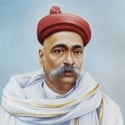 Lokmanya Tilak – Bharat’s Ideal Son
Lokmanya Tilak – Bharat’s Ideal Son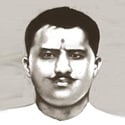 Ramprasad Bismil
Ramprasad Bismil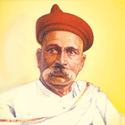 Upright nature of young Bal Gangadhar Tilak
Upright nature of young Bal Gangadhar Tilak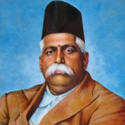 Dr. Hedgewar : An extraordinary personality
Dr. Hedgewar : An extraordinary personality